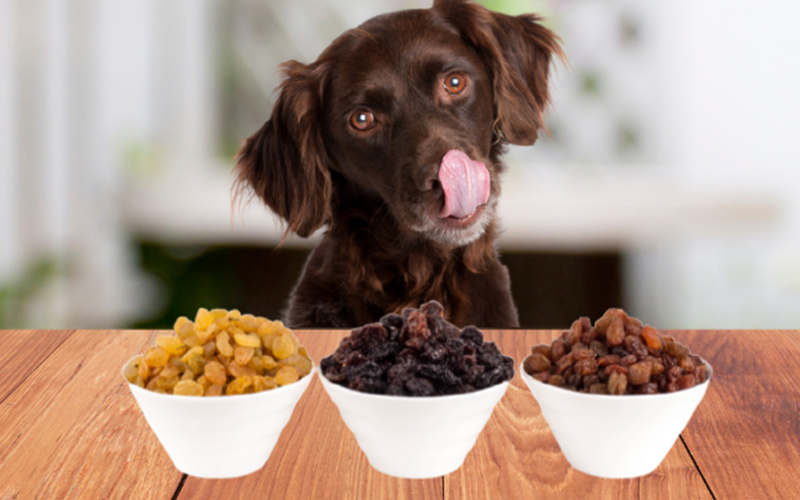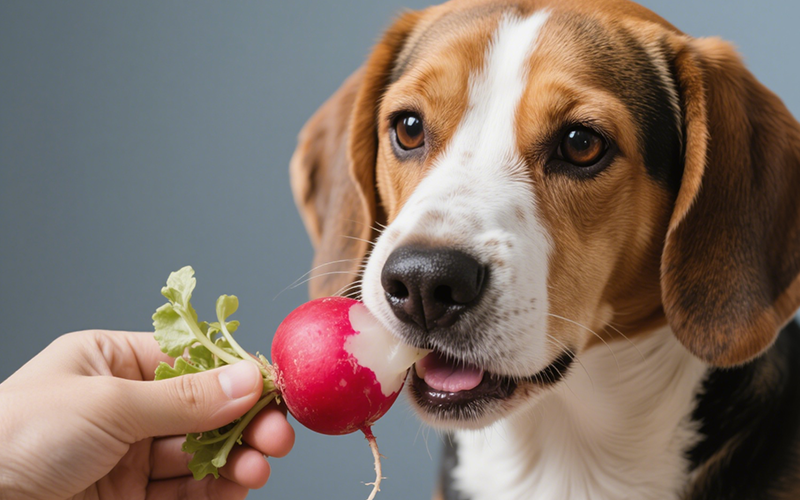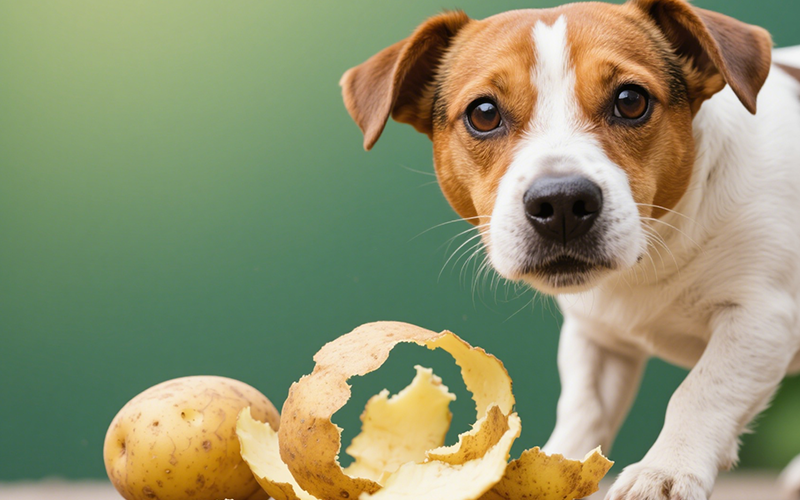Can Dogs Eat Raisins? A Guide to Understanding the Risks
- 24 Feb 2025 15:07
As a dog owner, you might be curious about what types of human food are safe for your dog to eat. While many fruits and vegetables are safe and even beneficial for dogs, raisins are an exception. Can dogs eat raisins? The answer is a definite no. Raisins (and grapes) are toxic to dogs and can cause serious health problems, even in small amounts.
In this article, we will discuss the dangers of feeding raisins to dogs, the symptoms of toxicity, and what to do if your dog eats raisins.

Why Are Raisins Toxic to Dogs?
The exact reason why raisins are toxic to dogs is still not fully understood, and there is no clear explanation for why some dogs are affected by raisins while others are not. However, it’s widely known that raisins can lead to severe kidney damage in dogs, and even a small amount can cause poisoning.
Raisins are dried grapes, and grapes have been known to cause acute kidney failure in dogs. The toxicity can occur whether the raisins are fresh or dried, and it does not appear to be linked to any specific breed, size, or age of the dog. Because the toxic dose varies from dog to dog, it’s impossible to know for sure how much of a raisin or grape will cause a problem.
Symptoms of Raisin or Grape Toxicity in Dogs
If your dog eats raisins, it’s important to watch for signs of toxicity and seek veterinary help immediately. Symptoms of raisin or grape poisoning in dogs can include:
Vomiting – One of the first signs your dog might show is vomiting, often within a few hours of ingesting raisins.
Diarrhea – Diarrhea is another common symptom of raisin toxicity, which can occur shortly after ingestion.
Loss of Appetite – Your dog may refuse food and show signs of lethargy or weakness.
Dehydration – Due to vomiting and diarrhea, your dog may become dehydrated. Signs of dehydration include dry gums, sunken eyes, and increased thirst.
Abdominal Pain – Your dog might show signs of painful bloating, and may even seem restless or uncomfortable.
Kidney Failure – In severe cases, acute kidney failure can occur within 24-72 hours of ingestion. Symptoms of kidney failure include increased urination, excessive thirst, and loss of energy. Kidney failure is serious and requires immediate veterinary care.
What to Do If Your Dog Eats Raisins
If your dog consumes raisins or grapes, it is crucial to act quickly. Here’s what you should do:
Contact a Veterinarian Immediately
Call your veterinarian or an emergency animal clinic as soon as possible. Even if your dog seems fine, it’s essential to seek professional advice. Time is critical when it comes to treating raisin toxicity.Inducing Vomiting
Your veterinarian may advise you to induce vomiting in your dog to remove the raisins from their system, especially if the ingestion was recent. Do not attempt to induce vomiting at home without guidance from a professional.Hydration and Supportive Care
In the case of poisoning, hydration is crucial. Your veterinarian may administer intravenous fluids to help prevent dehydration and support kidney function. If kidney failure occurs, additional treatment will be needed, which may involve dialysis or medications.Monitor for Symptoms
If you can’t get to the vet immediately or if your dog only ate a small amount, keep a close watch for any of the symptoms mentioned above. The sooner you address the problem, the better the chances for recovery.
How to Prevent Raisin Toxicity in Dogs
The best way to prevent raisin toxicity is to avoid giving your dog raisins, grapes, or any foods containing these ingredients. Keep raisins and grapes stored safely out of reach, and be cautious when sharing human food with your dog.
Other Foods That Are Harmful to Dogs
In addition to raisins and grapes, there are several other foods that are toxic to dogs. These include:
Chocolate – Contains theobromine, which is toxic to dogs.
Onions and garlic – Can cause damage to your dog’s red blood cells.
Xylitol – A sugar substitute that can cause insulin release and lead to hypoglycemia.
Macadamia nuts – Can cause weakness, tremors, and hyperthermia in dogs.
Alcohol – Even small amounts can lead to intoxication and dangerous reactions in dogs.
If you’re unsure whether a particular food is safe for your dog, it’s always best to consult your veterinarian before offering it to them.
Should You Use PettureX for Your Dog’s Health?
If you're ever in doubt about what foods are safe for your dog or need immediate advice regarding a potential poisoning, PettureX offers 24/7 online consultations with pet health professionals. You can get quick advice on what to do if your dog consumes something harmful, and receive guidance on how to protect your pet from potential dangers.
Conclusion: Can Dogs Eat Raisins?
In conclusion, dogs should never eat raisins or grapes, as they are highly toxic and can cause serious health problems, including kidney failure. Even small amounts of raisins can be dangerous, so it’s essential to keep them out of reach and avoid feeding them to your dog. If your dog eats raisins or grapes, seek veterinary care immediately.
Always be cautious when offering food to your dog, and if you have any concerns, don’t hesitate to consult with a professional like those at PettureX for 24/7 support.
Related

Radish Bites for Your Buddy? A Vet-Reviewed Guide on Whether Dogs Can Eat Radishes
- 22 Apr 2025
Potato Peels for Pooches? Unpeeling the Risks and Facts for Dog Owners
- 22 Apr 2025
Crunchy Curiosity: Can Dogs Safely Snack on Pork Rinds? A Deep Dive
- 21 Apr 2025
Pomegranate Seeds and Pooches: A Deep Dive into Whether Dogs Can Safely Indulge
- 21 Apr 2025
Can Dogs Eat Peaches? Vet Explains Benefits, Cyanide Risks & Safe Serving
- 16 Apr 2025
Can Dogs Eat Mulberries? Vet Explains Safety, Benefits & Potential Risks
- 16 Apr 2025
Can Dogs Eat Mozzarella? Vet Explains the Cheesy Truth (Risks & Benefits)
- 16 Apr 2025
Can Dogs Eat Mango Skin? Vet Explains Why It's a Risky Chew!
- 16 Apr 2025
Can Dogs Eat Maple Syrup? The Sugary Truth & Why Vets Advise Against It
- 16 Apr 2025
Can Dogs Eat Mac n Cheese? Vet Explains Why This Comfort Food Is Unsafe!
- 16 Apr 2025
